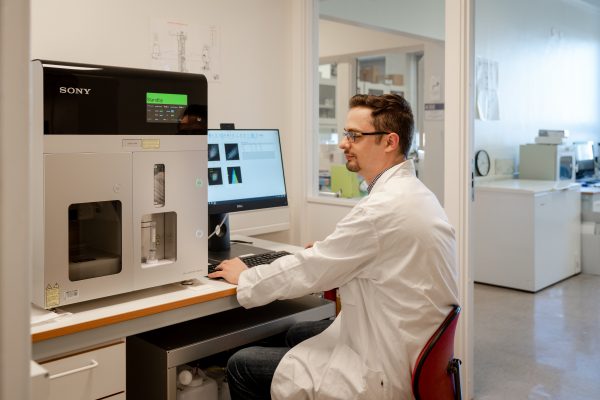– Heart failure remains a disease with poor treatment options, stemming from the current lack of knowledge surrounding why and how the heart changes in structure and function in response to various stresses, says Andreas.
Graduating from Imperial College London with a Masters degree in Immunology, Andreas was drawn into the field of Cardiology.
– Following the completion of my PhD in 2020, I continued my interest in cardiac research choosing to focus on the role of two important protein families in the heart; the integrins and proteoglycans. The excellent research conducted at IEMR led me to picturesque Norway.
A short return to the UK
This summer, Andreas, with support from K.G. Jebsen Center for Cardiac Research, entered the Scientia Fellows programme to study integrin biology in the world-renowned laboratory of Professor Martin Humphries at the prestigious University of Manchester.

Manchester. Photo: Fran Serra
– Humphries is an accomplished scientist, having published seminal works on integrin biology in top tier journals such as Nature Cell Biology and the Journal of Cell Biology. Under the expert mentorship of Humphries, I shall explore how cells in the heart causes the heart to become more stiff over the course of disease, says Andreas.
– Stiffening of the heart is a common occurrence in heart failure development. Perpetuated by the over-activity of fibroblasts, cells in the heart that maintain its structure and support its function in health, stiffness of the heart muscle can greatly impede the ability of the heart to relax, thereby reducing the efficiency of the muscle to pump blood throughout the body. Evidence suggests that both integrins and proteoglycans play an important role in the activation of cardiac fibroblasts.
Innovative methods
During his one-year stay abroad in the Humphries laboratory, Andreas’ goal is to identify alterations in the expression of specific integrins and proteoglycans in health versus cardiac disease. This will involve a broad screen proteomic approach utilizing mass spectrometry, a technique the Humphries group has successfully employed to study integrin biology.
– Learning innovative methodology such as this at the Humphries laboratory will be critical for my maturation as an independent researcher, but shall also be useful for the IEMR, when I shall return after my placement, Andreas concludes.
